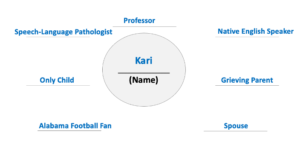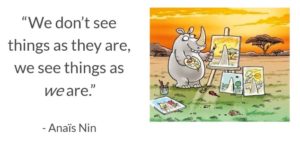Cultural Competence
Cultural Competence
Cultural competence is loosely defined as the ability to understand, appreciate, and interact with people from cultures or belief systems different from one’s own. It’s something that is never really mastered, human learning is always a work in progress. Before we can better understand cultural competence, we need to first look at what is culture.
What is Culture
Ethan Watters said that “The most interesting thing about cultures may not be in the observable things they do – the rituals, eating preferences, codes of behavior, and the like- but in the way they mold our fundamental conscious and unconscious thinking and perception.”

You’ve probably seen the Müller-Lyer illusion before. It goes like this- do you think these lines are equal or different?
The answer is equal. Believe it or not, your perception of the lines is based on your culture. The different ways people perceive the Müller-Lyer illusion likely reflect lifetimes spent in different physical environments. Ex. American children typically grow up in box-shaped rooms with clean lines and carpentered corners. So, visual perception adapts to seeing converging lines as 3 dimensions (HxWxL). In natural environments, where there are no carpentered corners, the brain is less likely to adapt, and these people will not see the illusion. Source: WE AREN’T THE WORLD by Ethan Watters
Everyone Has a Culture!
If you have been to one of my presentations, you have heard me say that everyone has an accent. Well, the same thing goes for cultures. We all belong to multiple cultural groups. A cultural group is simply defined as a collection of individuals who share a core set of beliefs, patterns of behavior, and values. When people think of cultural groups, they tend to think of religion, gender, race, and ethnicity. However, the categories are unlimited!
- Religion
- Gender identity
- Age
- Race
- Ethnicity
- Geographical location
- Languages spoken
- Abilities
- City of origin
- Country of origin
- Educational level
- Family structure
- Marital status
- Profession
- Club/Team affiliation
- SES
Reflect on Your Cultural Groups
Take a minute to reflect on the cultural groups that you identify with. The easiest way to do this is to grab a piece of paper. Draw a circle in the middle and write your name. Then draw 7-10 lines around the circle.

In each of the lines, write a cultural group that has had a significant impact on your life and values. You may notice that these groups change over time. Five years ago, this diagram would have looked differently and five years from now, it will look different again. Here’s mine:

To reflect on how these cultural groups have impacted you, good or bad, think about the following prompts:
- What are 2-3 values that you have learned from each cultural group?
- Are there any areas where these groups create a conflict?
- What cultural groups have the most impact on you as an SLP?
Cultural Lens
Sometimes it’s difficult to think about ourselves and how we relate to our environment until we have the chance to immerse ourselves in a new experience. Like, traveling or moving to a new city. This is referred to as the fishbowl analogy. This analogy means that we are all immersed in our reality, much like a fish in a fishbowl. A fish cannot distinguish itself from its water or bowl, just as most of us don’t distinguish ourselves from our thoughts until we change our environment. I love the image below. 💗

Final Thoughts
In summary, I made a very short list of what cultural competence is and is not. 😎
Cultural competence is not:
- Something you master and stop learning
- Prescriptive (this is what leads to stereotyping)
- Judging others
Cultural competence is:
- Ongoing in development
- Something to be curious about (ask questions!)
- Leads to appropriate and effective communication
- Something the world is still developing terminology around

What cultural groups resonate with you? How do you define cultural competence? Let me know in the comments below ⬇️
